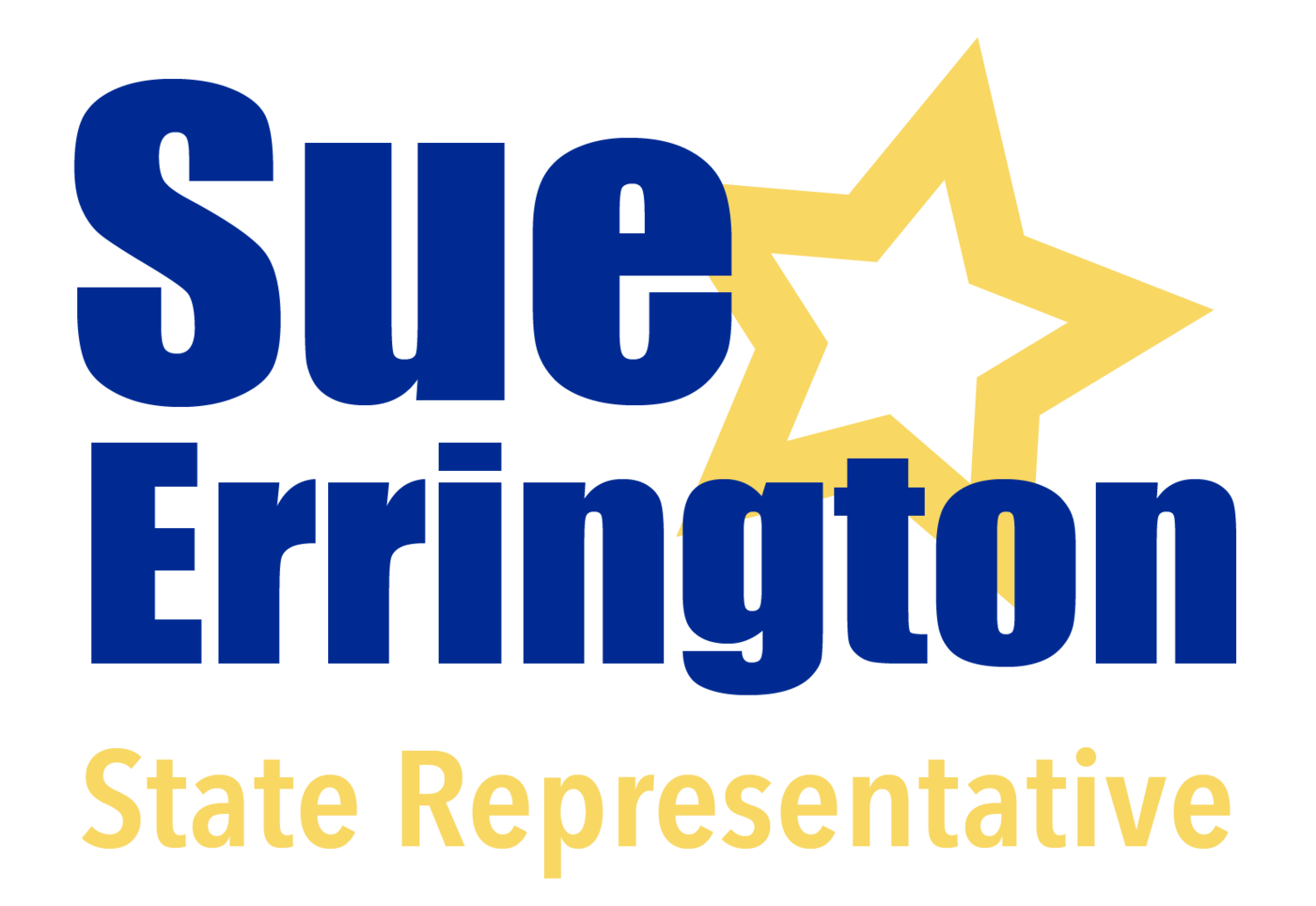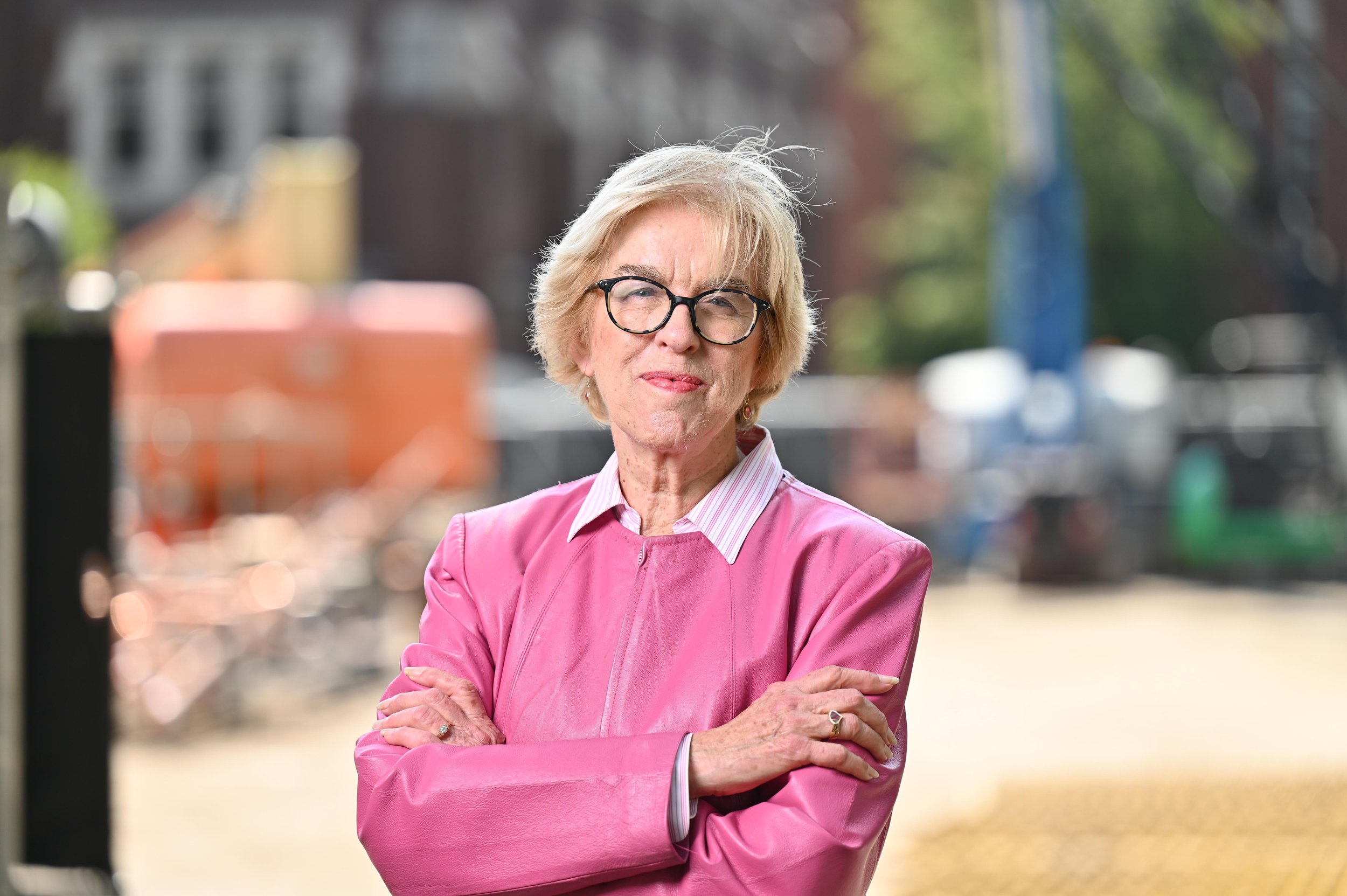Where Sue Stands on the Issues
Women’s Right to Choose
The right to make decisions about women’s reproductive health—including if, when, and how many children they bring into their lives—doesn’t belong to strangers. It belongs to women themselves. At the core of the abortion issue is one question: Who decides? I support the right of women to make reproductive decisions without government interference. Women understand the consequences of their pregnancy decisions. I trust women to make the best choice for their situation.
Fifty-one percent of pregnancies in the US are unintended—one of the highest rates in the developed world. For almost 50 years, Indiana women had the right to decide for themselves what to do about an unplanned pregnancy. Now, the Indiana government decides. Every woman’s situation is different, but the near-total abortion ban passed in the August 2022 special session makes one size fit all.
The best way to stop abortion isn’t to ban it, but to prevent unintended pregnancy in the first place. At the statehouse, I have consistently advocated for increased access to contraceptives and medically accurate, age-appropriate sex education. Where implemented, these policies result in a reduced number of abortions. Yet, year after year, the Republican-dominated committees of both houses of the Indiana Legislature have refused to hear bills supporting medically accurate sex education. Republicans also voted down a proposal in the August 2022 special session to allow pharmacists to prescribe oral contraceptives and the patch which is allowed in 17 other states and the District of Columbia. Passing these measures would help empower women to control their own reproductive lives, decreasing the number of unintended pregnancies and abortions. These policy decisions along with poor funding for women’s reproductive health are critical public health issues in Indiana. As a result, our state has one of the nation’s highest maternal and infant mortality rates. Those numbers will rise as a result of Indiana’s near-total ban on abortion.
Voting Rights
Voting is a right and a privilege, and we should do all we can to remove barriers to the exercise of this basic act of citizenship. Dropping the excuses needed to vote by mail is a good first step Gerrymandering is the manipulation of legislative district lines to favor one political party. The Indiana Republican supermajority has honed gerrymandering to a science and, as a result, Indiana’s district maps are among the most gerrymandered in the country. Gerrymandering stifles competition between parties and makes the primary the race that counts. Gerrymandering discourages voting and strangles efforts by Hoosiers to solve the difficult issues facing our state. Voters should pick their legislators, but in Indiana legislators pick their voters when they draw maps to favor themselves.
. Moving to 100% vote by mail with no need to apply, as already occurs in several states, is another option. Expanding voting hours, vote centers, and early voting, and allowing same-day registration are other ways to make voting easier.
Education
I support strong public schools. The diversion of public funds through private school vouchers has had a devastating impact on our public schools, which is where over 90% of Hoosier children receive their education. I don’t oppose private education, but Indiana cannot adequately fund public and private education systems. The founders of our country recognized that public education was the bedrock of democracy. It still is. Therefore, we should stop subsidizing education for the few and concentrate our resources on improving the quality of education for the many.
To ensure a strong educational system, we must support teachers and start early. Good teachers are the most important influence on a child’s education. We need to stop paying teachers lip service and begin paying them a living wage and showing them the respect they deserve.
A child’s first five years are critical to a successful and happy life. Indiana lags behind other states in adopting and funding universal pre-K and mandatory kindergarten where early literacy skills develop. With next-to-no state funding of early childhood education, we should not be surprised by the current crisis in third grade reading scores. And students who can’t read by grade three are more likely to drop out of high school, leading to a lifetime of economic difficulties. Research demonstrates that retaining these students is not only ineffective, but socially detrimental.
Finally, we must do all we can to promote lifelong education. It’s not just a slogan. It’s a necessity for Hoosiers and our economy. It’s clear that a high school diploma is not enough for 21st-century workers. Higher education—whether that is a certificate, a two- or four-year, or advanced degree—must be affordable for everyone. With smart and adequate state support, we can reduce tuition costs, making college affordable, and provide prospective employers with a career-ready workforce. That means better jobs for Hoosiers, better employees for businesses, and a better economy for Indiana.
Jobs
Our economy was built by hard-working Hoosiers. Their families need the strong collective voice that organized labor provides. Over the last several years, the Indiana General Assembly has enacted laws to weaken unions. The results are telling. Indiana is ranked 39th in the nation in per capita income. In addition, Indiana’s gender wage gap—the difference between what men and women earn—is the 9th widest in the nation. The Coronavirus pandemic took an additional toll on Indiana’s economy and Indiana’s working families. Clearly, Indiana doesn’t need simply more jobs; we need better-paying jobs that enable all workers to support themselves and their families. Attracting such jobs requires a well-educated workforce, so we must support public education from pre-K to college. It also requires that economic development strategies recognize the importance of quality of place to compete for today’s young workers. To ensure that working people earn sustainable wages, we must raise the minimum wage and protect the rights of workers to organize.
Climate Change and the Green Energy Economy
I believe in science. I listen to the scientists and read the research that makes it clear Indiana needs policies that address changes in our climate right now. Indiana's environmental rankings have been consistently low. Climate modeling by the Purdue Climate Change Research Center shows our state becoming warmer and wetter with the pace of these changes picking up speed as heat-trapping gases, produced by humans burning fossil fuels, continue accumulating in the atmosphere. We must retire our aging coal plants, retrain miners, and encourage the production of sustainable energy. By investing in clean, renewable energy, we will protect Hoosiers from the harmful effects of burning fossil fuels, while providing good-paying jobs and strengthening our economy. I want Indiana to look forward, not backwards.
Health
No one should have to choose between seeing a doctor and paying the rent. Unfortunately, this is a decision many Hoosiers have to make. I will continue to fight for public policies that make health care accessible and affordable for all. Health care includes mental health care and addiction treatment. We must recognize that addiction is a public health and social justice issue and treat it accordingly. To treat addiction as a criminal justice issue alone fails so many Hoosiers and their families.
We have seen the need for strong public health policy, infrastructure, and leadership. Times of crisis like the HIV outbreak in Scott County a few years ago and the recent Coronavirus pandemic require a strong public health infrastructure to protect our citizens from disease.
Marijuana
I support marijuana legalization. Hoosiers suffering from pain and a variety of chronic illnesses should not be subject to arrest and incarceration for possessing cannabis, which is legally available for medical use in 39 states and the District of Columbia. It is also legal for recreational use in 22 states and the District of Columbia. We should not continue to fill our prisons with people convicted of minor marijuana possession. The enforcement of marijuana laws falls heaviest on the young and minorities and has created egregious racial disparities in the prison population. The thousands of convictions come at a huge financial cost to individuals and the state for a substance widely considered less harmful than alcohol.
Gun violence
Indiana has the highest rate of gun homicides in the country—a rate that increased over the past decade, higher than the nationwide increase. Over half of Indiana's suicides are by firearms and our rate of suicides by firearms has been consistently higher than the national average. We need common sense gun laws to stem the violence: measures like requiring safe storage, allowing cities and towns to have gun policies more stringent than the state law, increasing the minimum age for possessing a handgun to age 21, and restoring the requirement to get a permit to carry a gun.
Inclusivity
No Hoosier should be subjected to discrimination because of who they are or who they love. Yet over the past three years, the Republican supermajority has waged an unprecedented attack on LGBTQIA+ Hoosiers, particularly trans youth, including a ban on gender-affirming healthcare, censoring books in school libraries, and forcing school administrators to inform parents of a student’s requested pronouns and name. Moreover, Indiana civil rights laws are not comprehensive and fail to protect LGBTQIA+ individuals from discrimination. Indiana’s hate crimes law fails to do what a hate crimes law should do—protect minority groups against bias. This needs to change. As long as people can be fired, denied housing, denied service at a store, or banned from playing on a sports team because of who they are, Indiana will fail to live up to its ideals of true hospitality and respect, and some Hoosiers will continue to face discrimination.





